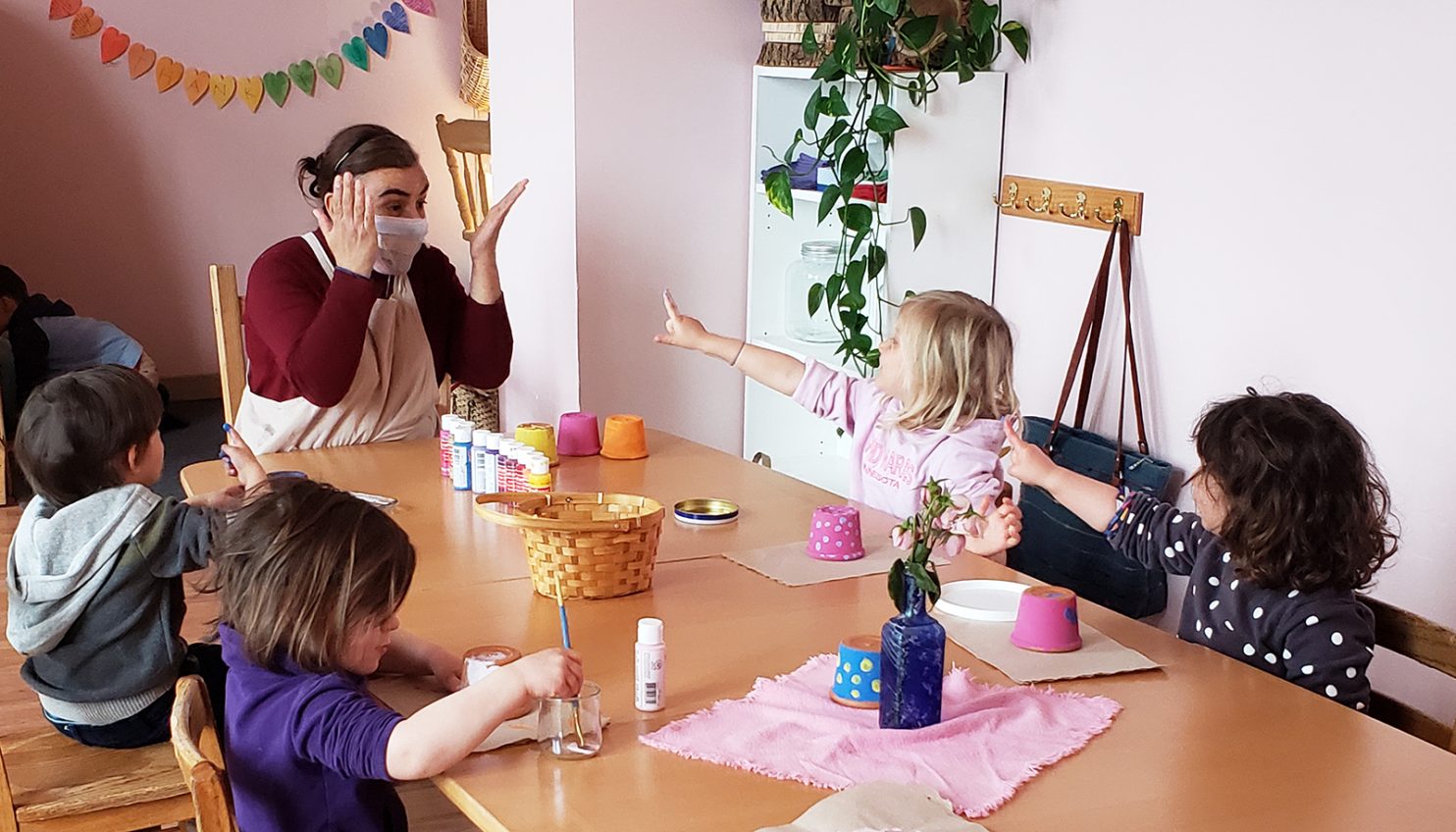As we begin the new school year, which for many may be a new experience, it is important to remember that each child will approach this transition differently. Separation anxiety can vary with the child’s age, their normal response to change, and with stresses in the child’s life outside of school. Here are several suggestions from our early childhood teachers to help ease separation anxiety and the transition back to school.
Visit the classroom.
Visiting your child’s classroom with your child before they begin school helps them to become familiar with the teachers and the school environment without the parents leaving. Many of our teachers also make home visits throughout the summer to get to know the children in their home environment. If you are interested in visiting the classroom or welcoming your child’s teacher for a home visit, please contact your class teacher.
Make partings brief.
During the period of transition and adjustment, parents should acknowledge and accept their child’s feelings. Their sadness at “losing” the parent is very real, and they should be allowed to admit these feelings. At the same time, it is important for the teacher and parent to remain positive about the situation. Show understanding and support for your child’s feelings, assure them that you will return, and leave with a hug and a confident smile. Prolonging the parting extends the time it takes for your child to adjust.
Demonstrate trust.
Parents may inadvertently give their child a double message. The teacher says everything is fine and safe, while the parent may be supporting the child’s apprehension and fear by staying at school. When the child is seeking comfort and feeling anxious about the parent’s inevitable departure, they are not free to have the full experience of school, playmates, and activities. Until the child receives a positive message from both parent and teacher, the child will remain confused and the adjustment period will be prolonged. Show your child that you have confidence in their ability to be part of this new experience by demonstrating trust in the teacher, and in the decision you have made on your child’s behalf.
Back to school anxiety can affect older children, too.
“At each developmental stage, there are new worries,” says Marcia Slattery, MD, a UW Health child and adolescent psychiatrist and director of the UW Anxiety Disorders Program. “There are a lot of unknowns at the start of a school year, and the anxiety bubbles up.”
Slattery has found that establishing routines and developing a plan with your child ahead of time can provide kids with a source of comfort and help them to remain calm when heading back to school. Read the full article here.
You may also be interested in…
- Our Curriculum: No Heart Left Behind. Learn more about Waldorf education and how our curriculum is carefully designed to match each stage of your child’s development.


